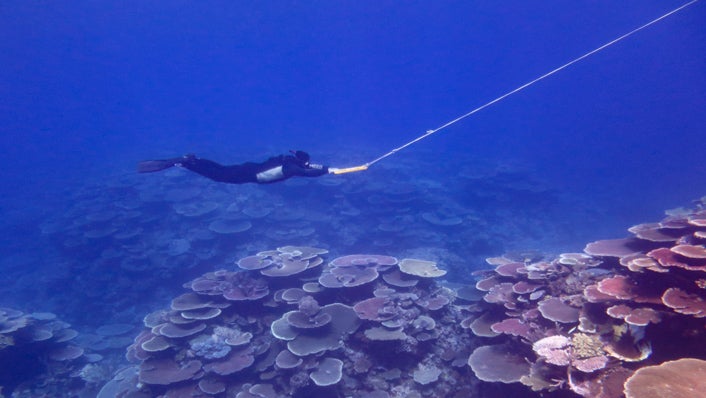Great Barrier Reef recovering but coral still in danger from climate crisis
However coral bleaching remains a threat for large parts of the structure

Australian scientists say they have recorded the highest levels of coral cover in 36 years in some parts of the Great Barrier Reef.
The Australian Institute of Marine Science (Aims) said the average hard coral cover in the northern region of the natural wonder increased to 36 per cent (from 27 per cent in 2021) and to 33 per cent in the central region (from 26 per cent in 2021).
However, the experts warned any recovery could be reversed as coral continues to be bleached as a result of heat stress caused by global warming.
Dr Paul Hardisty, CEO at Aims, said: “Every summer the reef is at risk of temperature stress, bleaching and potentially mortality and our understanding of how the ecosystem responds to that is still developing.”
Dr Mike Emslie, Aims monitoring program team leader, added: “The increasing frequency of warming ocean temperatures and the extent of mass bleaching events highlights the critical threat climate change poses to all reefs, particularly while crown-of-thorns starfish outbreaks and tropical cyclones are also occurring.
“Future disturbance can reverse the observed recovery in a short amount of time.”

In May it was reported that more than 90 per cent of Great Barrier Reef coral surveyed this year was bleached in the fourth such mass event in seven years in the world’s largest coral reef ecosystem.
The Great Barrier Reef Marine Authority said it was the reef’s first bleaching event during a La Niña weather pattern, which is associated with cooler Pacific Ocean temperatures, and found 91 per cent of the areas surveyed were affected.
Bleaching in 2016, 2017 and 2020 damaged two-thirds of the coral in the famed reef off Australia’s eastern coast.

A United Nations delegation visited the reef in March to assess whether the reef’s World Heritage listing should be downgraded due to the ravages of climate change.
In July last year, Australia garnered enough international support to defer an attempt by Unesco, the United Nations’ cultural organisation, to downgrade the reef’s World Heritage status to “in danger“ because of damage caused by climate change.




Join our commenting forum
Join thought-provoking conversations, follow other Independent readers and see their replies
Comments